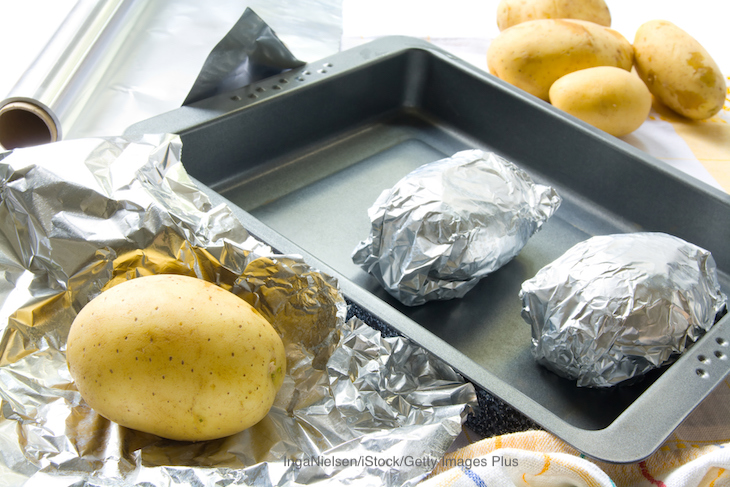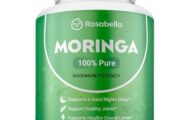Potatoes aren’t often thought of when people think about food poisoning. This root vegetable is, after all, always cooked before it’s eaten, which would kill off any pathogenic bacteria. But this vegetable grows in soil and can be contaminated at any point along the supply chain.

But there have been some outbreaks linked to potatoes. Clostridium botulinum outbreaks have been linked to baked potatoes that are wrapped in aluminum foil. The spores that produce this deadly toxin are found in the soil, and they can contaminate the spuds. The spores can sometimes survive the baking process. If the potatoes are baked while tightly wrapped in aluminum foil, that creates an anaerobic (oxygen-free) environment. And that creates the perfect conditions for botulism spores to germinate, grow, and produce the botulism toxin.
A large botulism outbreak in Texas in 1994 was linked to a potato-based dip. Thirty people were sickened. Investigators found Botulism toxin type A in the patients and the dip. The foil-wrapped spuds were held at room temperature for several days before they were used to make the dip.
To prevent this risk, never leave foil wrapped potatoes at room temperature or in a warming oven that is set below 140°F. Also, make sure that any spuds that are baked in foil are eaten within two hours of cooking. Or refrigerate the potatoes within two hours of cooking. It’s also a good idea to loosen the foil around the potatoes so oxygen can get in.
In the summer months, many people make potato salad to take to picnics. Most people think that the mayonnaise in those products makes the food susceptible to pathogens. But, in truth, the mayonnaise contains acid, which limits bacterial growth. The potatoes are usually the culprit; they may be contaminated with Staphylococcus or Clostridium perfringens bacteria.
Home canned potatoes caused a botulism outbreak in Ohio at a church picnic in 2015. The potato salad served at that event were made with the home processed spuds. Twenty-one people were sickened and one woman died. Canning low acid veggies is especially risky. Vegetables should always be canned using a pressure canner.
And in 2016, a Listeria monocytogenes outbreak that was linked to frozen vegetables from Oregon Potato Company sickened nine people in four states. CRF Frozen Foods packaged and marketed some of the frozen vegetables. Those facilities process carrots, potatoes, corn, asparagus, and other produce. Listeria monocytogenes was isolated from sweet corn and peas in that outbreak. More than 456 products were recalled because of the outbreak.
The4re have been a few recalls of salad for possible Listeria monocytogenes contamination. One, in 2016, was for Winn Dixie Potato Salad, and another, also in 2016, was for Evie’s Cheddar Potato Salad.
The moral of this story is that any food can be contaminated with pathogenic bacteria. Consumers should be aware of this, and treat all foods as potentially contaminated. That doesn’t mean you have to be scared. Just be cautious in the kitchen. Wash and scrub all produce before you eat them or cook them. Make sure that all perishable foods, which includes produce, are cooked to a safe internal temperature (160°F for casseroles), and refrigerate all foods promptly after you have finished eating.



